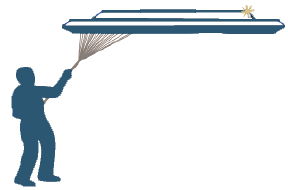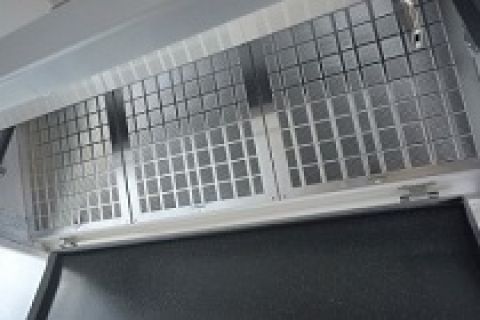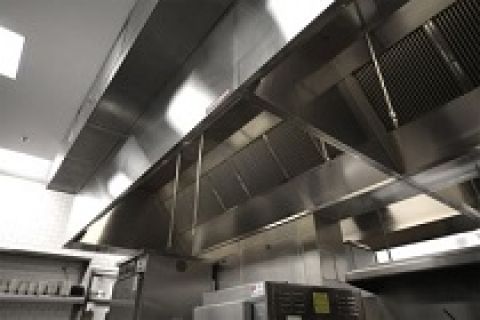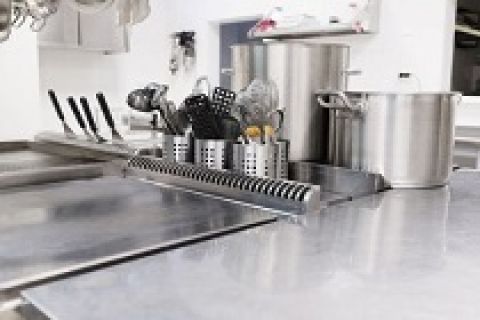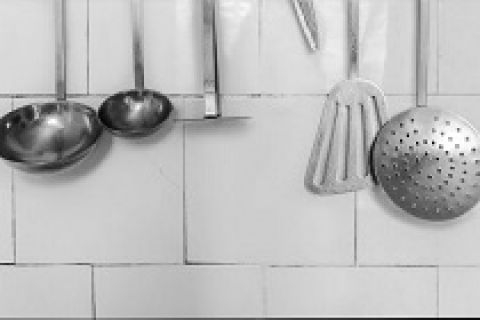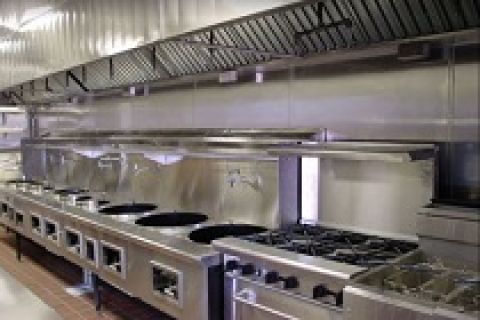The Most Common Kitchen Maintenance Mistakes to Avoid
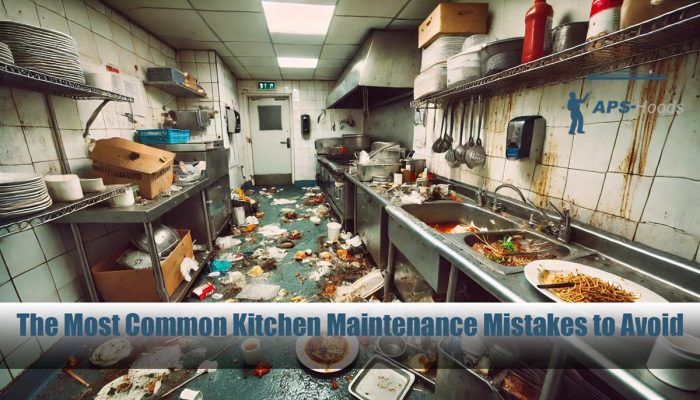
Avoiding common kitchen maintenance mistakes is something that takes work. It is a complicated and hard task that requires attention to detail, safety standards, and equipment care.
Common kitchen maintenance mistakes can sometimes have far-reaching effects. However, food service operators may sometimes overlook crucial maintenance practices that can lead to safety violations, costly repairs, and also health risks.
In this article, we will explore the most common errors in commercial kitchen maintenance and offer you practical tips on how to avoid them ensuring an efficient, safe, and compliant kitchen.
Give us a chance to pave your way for a better and safer commercial kitchen. Dial 800-750-7313 for a free consultation.
Neglecting Regular Inspections
One of the most common kitchen maintenance mistakes is neglecting regular inspections. The hidden costs of this oversight can extend beyond immediate repairs and maintenance.
Small issues such as a leaking faucet or a malfunctioning oven can worsen over time if not addressed quickly. So, this can result in more extensive damage and costly repairs. Moreover, a lack of regular inspections often leads to unexpected equipment failures.
Serious equipment failures can lead to lost sales and customer dissatisfaction. Besides, with unreliable equipment, the staff loses focus on food preparation and service and has to waste time troubleshooting different issues instead.
Inefficient equipment uses more energy and increases energy bills. For example, dirty filters in HVAC systems or ovens can lead to higher energy consumption. So, regular inspection will help you with timely repairs or replacements.
Regular inspections can help to ensure compliance with health and safety regulations and also reduce the risk of penalties, fines, reputation damage, or even temporary closure of your kitchen.
Faulty equipment can lead to foodborne illnesses and pose serious health risks to customers. For example, improper refrigeration systems can cause food spoilage, wasted inventory, and finally increased food costs.
Moreover, conducting regular inspections will help to lower insurance costs. If an incident related to neglected maintenance happens, insurers may deny coverage, leaving you responsible for all the costs.
Finally, damaged and improper kitchen stuff will affect the staff negatively. Low job satisfaction will lead to high turnover rates and then additional hiring and training costs, resources, and time.
Ignoring Equipment Manuals
Ignoring manuals have different consequences that may lead to increased costs, operational inefficiencies, and safety hazards.
Overlooking the guidelines can lead to misuse which may cause early wear and tear or complete equipment breakdowns.
Manufacturer’s recommendations for maintenance are very important and ignoring them will lead to more frequent and severe repairs. Thus, operational costs will increase significantly.
Improperly maintained equipment will not operate efficiently resulting in slower service, reduced productivity, and also higher energy bills.
Neglecting safety guidelines included in manuals can increase the risk of accidents and injuries in the kitchen and this may lead to worker’s compensation claims or legal liabilities.
The manuals also contain cleaning and maintenance protocols. Ignoring these protocols may pose health risks to customers.
Ultimately, failing to adhere to specific maintenance schedules and procedures outlined in manuals can result in insurance complications, decreased staff motivation, and also regulatory compliance issues
Overlooking Cleaning Protocols
Another one of the most common kitchen maintenance mistakes is not paying enough attention to cleaning protocols.
Poor cleaning practices can increase the risk of foodborne illnesses and so pose serious health risks and contaminate food supplies. This may occur through dirty surfaces, utensils, or equipment that comes into contact with raw and cooked foods.
There are strict regulations for cleanliness in food establishments and overlooking them may lead to fines, penalties, legal actions, or even temporary closure during inspections.
Clean the commercial kitchen equipment regularly. If you don’t do that, you will have a buildup of grease, grime, and food particles which will cause more frequent breakdowns or replacements. Thus, the lifespan of your equipment will become shorter and also maintenance costs will increase.
Moreover, when the staff struggles to find clean tools or ingredients, kitchen operations will slow down, service tasks will be delayed, and also customer satisfaction will decrease.
Remember! Much more time will be needed for deep cleaning of a dirty kitchen.
Ignoring cleaning protocols will create a chaotic and dirty working environment. This will affect the performance, well-being, and job satisfaction of your staff. So, turnover rates will increase and you may have difficulty attracting new staff.
Above all, customers expect to find cleanliness in different parts of your food establishment from your cooking and serving equipment to floors, walls, and ceilings. If you fail to meet their standards, you will get poor reviews and that will damage your restaurant’s reputation.
No need to hesitate. APS-Hoods is here to provide you with ideal Solutions.
Failing to Train Staff
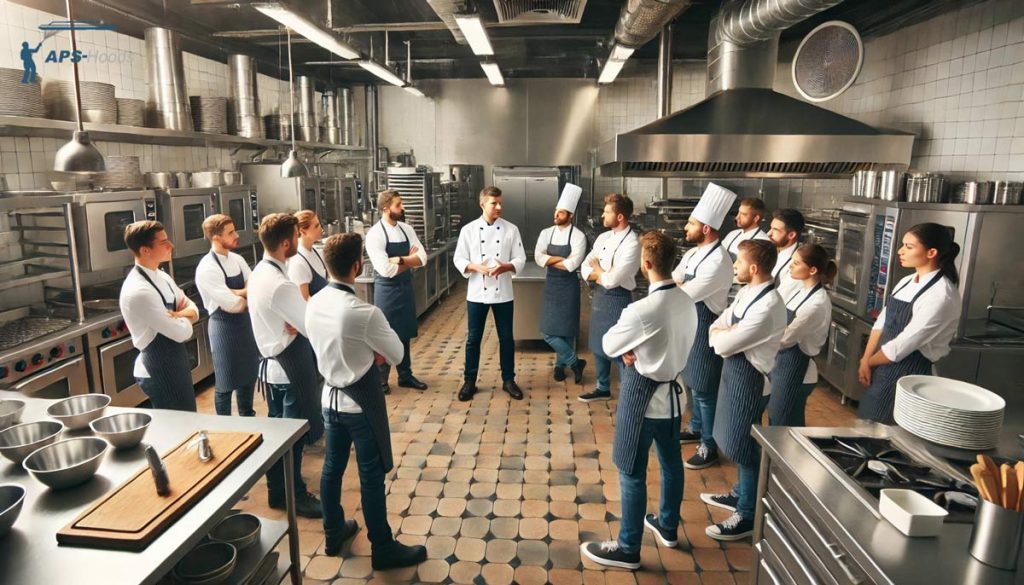
There are many common kitchen maintenance mistakes. Another one of them is not training your kitchen crew on how to keep things running smoothly which can lead to
1. Equipment Breakdowns
If your staff doesn’t know how to operate or maintain kitchen equipment correctly, it is bound to break down more often. So, you will face unexpected repair bills and downtime when you really don’t want it.
2. Safety Risks
A poorly maintained kitchen can turn into an accident waiting to happen. If the staff doesn’t know how to use equipment safely, someone could get hurt.
3. Hygiene Issues
If your team isn’t trained on proper cleaning and maintenance, foodborne illnesses and health code violations may come along.
4. Slower Service
With untrained staff who can’t complete tasks quickly or can’t perform them correctly, you will face decreased productivity and longer customer wait times.
5. Higher Costs
Constant repairs, wasted energy, and potential fines can really add up. You don’t want your kitchen budget going down the train because of avoidable issues.
6. Negative Impact on Food Quality
Improperly maintained kitchen equipment can affect cooking temperatures and food storage. So, the quality and safety of the food will be reduced.
7. Staff Frustration
Your staff might feel overwhelmed if they don’t have the right skills for the job. Thus, it will lead to low morale and high turnover which isn’t good for any business owner.
8. Legal Trouble
Not keeping your kitchen up to code can lead to some serious legal issues such as lawsuits if someone gets hurt or sick.
9. Bad Reputation
If your kitchen is known for being dirty or having broken equipment, you may start seeing negative reviews and ultimately a damaged reputation. Therefore, customer loyalty and business profitability will decrease.
10. Inconsistent Training and Knowledge Gaps
Without proper training, some staff will be professionals while others are clueless. So, this inconsistency will lead to confusion and mistakes.
Using Improper Cleaning Supplies
Using the wrong cleaning supplies is one of those common kitchen maintenance mistakes that can really mess things up.
Firstly, if you are not using the right stuff, you might not kill off all those germs and bacteria. Thus, foodborne illnesses won’t be out of expectation.
Secondly, mixing cleaning products can create some pretty scary reactions; so, you could end up with toxic fumes or even a mini-explosion.
Thirdly, some cleaners are too harsh for certain surfaces or tools. Using them can ruin your expensive equipment or leave surfaces looking all scratched up or discolored.
Fourthly, proper kitchen equipment cleaning matters a lot because the wrong cleaning products can leave behind residues that may mess with food flavors or even make people sick.
Moreover, many places have strict rules about what cleaning supplies you can use in the kitchens. If you are not compliant, you could face fines or even get shut down.
If your cleaners aren’t doing their job, grease and grime will stick around, making your kitchen look dirty, attracting pests, and creating a negative dining environment.
When you use improper cleaning supplies, it can lead to damage or ineffective cleaning. So, you may spend more on repairs, replacements, or other additional cleaning products to make up for the shortcomings.
Using the wrong chemicals can be harmful to your staff, leading to skin irritations or breathing issues. Keeping your team safe should always be a priority.
Besides, if customers notice your kitchen is dirty or smells bad because of poor cleaning protocols they will be quick to leave negative reviews.
Finally, let’s not forget about training challenges. If you are using a bunch of different cleaners, it can confuse your staff about what to use and when. So, this inconsistency can lead to mistakes and a messy kitchen.
Underestimating Ventilation Needs
Here are some key results:
– Poor Air Quality
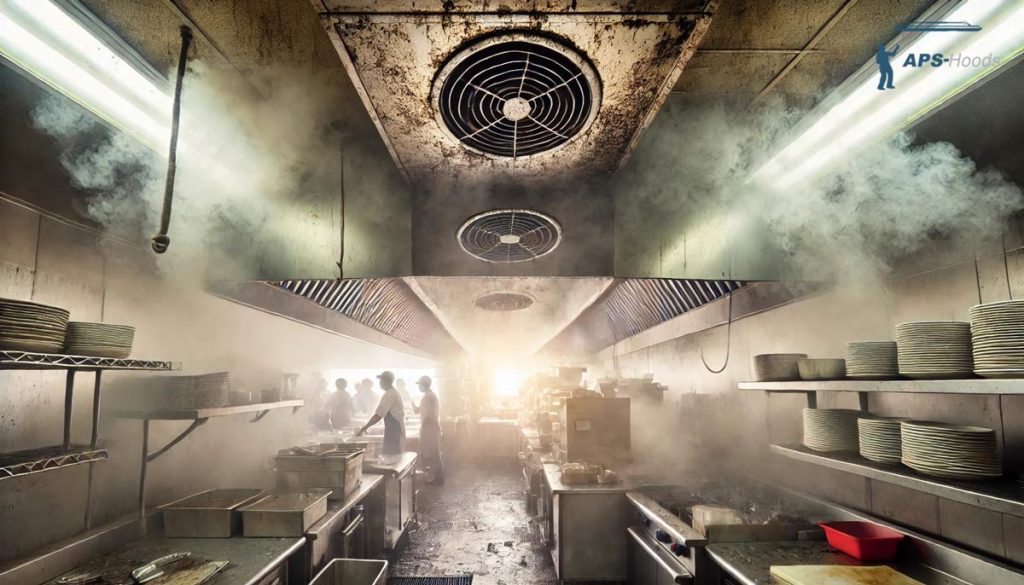
If there isn’t enough airflow, you will have a kitchen full of smoke, grease, and bad smells. So, the staff and customers may feel uncomfortable and it may also lead to respiratory issues over time.
– Increased Heat and Humidity
Without efficient ventilation, the kitchen gets hot and humid, creating a bad working environment. Nobody wants to deal with heat stress while trying to prepare meals.
– Fire Hazards
Grease buildup is a fire hazard waiting to happen. Without proper ventilation, you are increasing the chances of a kitchen fire, which is the last thing anyone wants.
– Equipment Damage
Too much heat and moisture can damage your kitchen gear. As an example, refrigeration units, ovens, and fryers might have to work harder to keep their optimal temperatures. Thus, you will have increased wear and tear and higher maintenance costs.
– Compliance Issues
Most places have health codes that require certain ventilation standards. If you don’t meet them, you may face fines or even get shutdowns.
– Increased Energy Bills
An inefficient ventilation system can increase your energy costs. If it is not doing its job right, you will be paying more for less.
– Negative Customer Experience
If the air smells bad or feels uncomfortable, customers won’t want to return to your establishment. A bad experience can hurt your reputation and drive people away.
– Unhappy Staff
A stuffy uncomfortable kitchen can kill morale. There will be no motivation for working in such an environment. So, the staff won’t stick around for long, leading to high turnover rates.
– Food Safety Risks
Poor ventilation can affect food safety. If it gets too hot or humid in the kitchen, it may spoil food or lead to contamination.
– Cleaning Nightmares
Without good airflow, grease and grime will build up fast. You will end up spending more time and energy cleaning, which takes away from actual cooking time.
Frequently Asked Questions on Common Kitchen Maintenance Mistakes
1. What Are the Most Common Kitchen Maintenance Mistakes?
Neglecting the sink, ignoring appliance maintenance, not checking for leaks, overlooking the range hood, using the wrong cleaning products
2. How Often Should I Clean My Kitchen Appliances?
– Daily: Wipe down surfaces, including countertops, the stove, and the microwave.
– Weekly: Clean the refrigerator interior, the oven exterior, and any small appliances like toasters or coffee makers.
– Monthly: Deep clean the dishwasher filter, range hood, and behind and under appliances.
– Annually: Check and clean behind large appliances and perform maintenance checks on all major appliances.
3. What Is the Best Way to Clean My Kitchen Sink?
Use a mixture of baking soda and vinegar to scrub the sink. Rinse thoroughly with warm water. For stainless steel sinks, a gentle abrasive cleaner can help remove tough stains without scratching.
4. Is It Necessary to Clean the Dishwasher?
Yes, it is essential to clean your dishwasher regularly. Remove food debris from the filter, run a cleaning cycle with vinegar or a dishwasher cleaner, and wipe down the door seals.
Let us help you maintain your food establishment professionally.Call 800-750-7313 for more information.
Professional Commercial Kitchen Maintenance Services in Denver, CO.
In a nutshell, keeping a commercial kitchen running smoothly is very important for both safety and efficiency, but a lot of places end up making some pretty common kitchen maintenance mistakes.
Skipping out on regular cleaning of appliances, ignoring plumbing issues, and not sticking to proper food safety practices can really mess things up, leading to equipment breakdowns, long-time services, and customer dissatisfaction.
By choosing our expert team to help you well-maintain your commercial kitchen, you will be able to boost your staff performance and also lifespan of your equipment. We guarantee to provide you with a safer and more efficient space for everyone.
At APS-Hoods, we have highly qualified and dependable staff. We take pride in offering our clients quality guarantees and providing superior services.
